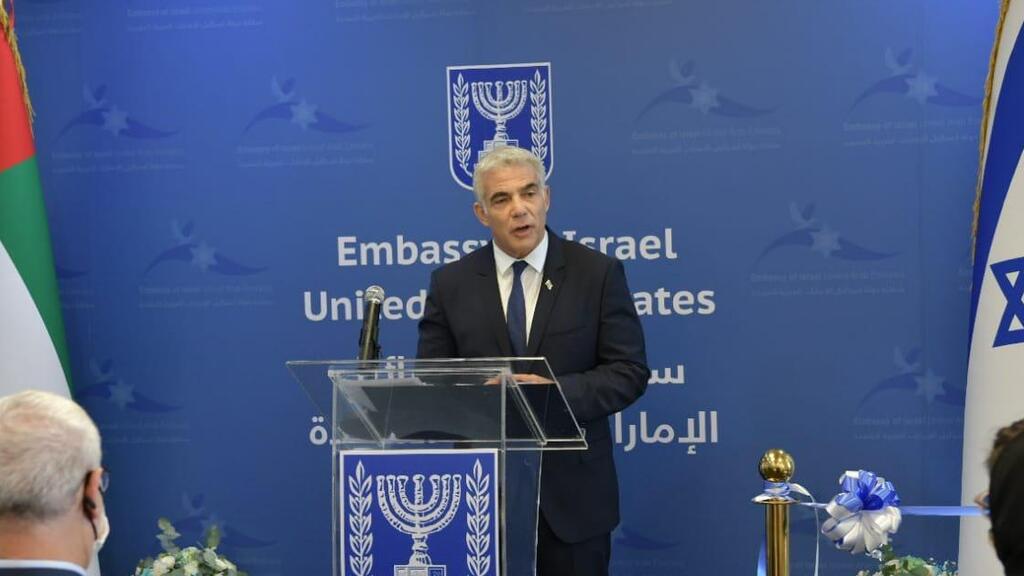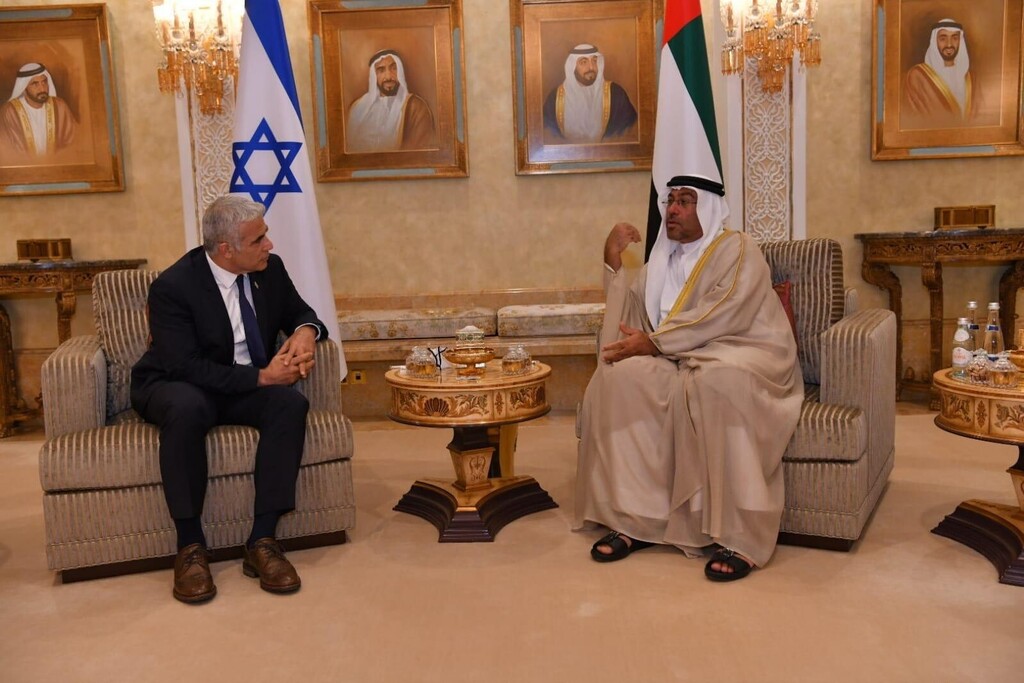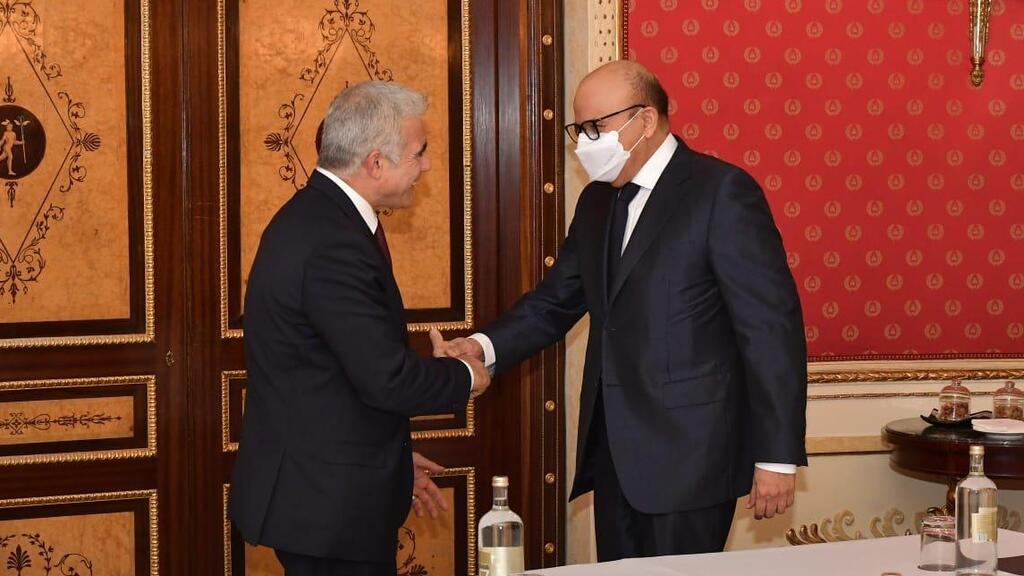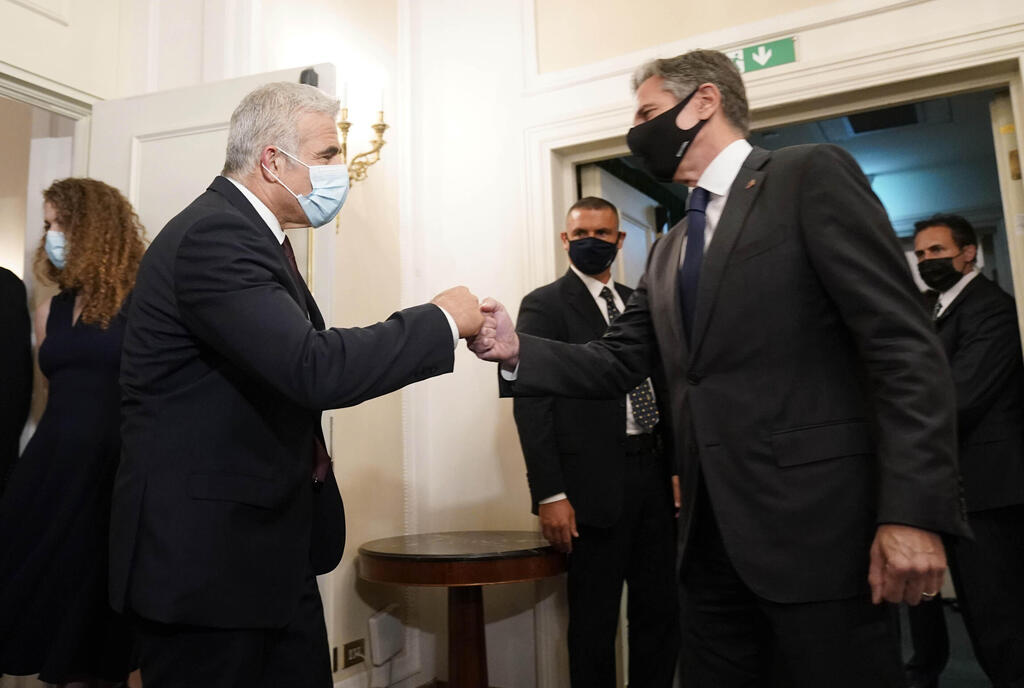Foreign Minister Yair Lapid celebrated the push for regional peace Tuesday as he officially inaugurated Israel's first embassy to the UAE in Abu Dhabi as part of a two-day diplomatic visit to the Gulf kingdom.
Speaking at the ribbon-cutting ceremony, Lapid thanked former prime minister Benjamin Netanyahu, whom he called the "architect" of the normalization agreements Israel signed last year with the UAE, Bahrain and Sudan.
4 View gallery


Foreign Minister Yair Lapid at the inauguration of the Israeli embassy in Abu Dhabi on Tuesday
(Photo: GPO)
"I would like to thank first and foremost to the former prime minister. This moment is as much his as it is ours," he said.
"Israel wants peace with all its neighbors,” local media quoted Lapid as saying. "Israel is not going anywhere, and the Middle East is our home."
"Peace isn’t a compromise," the foreign minister said. "Peace is the victory of all that is good."
The Israeli top diplomat was welcomed at Abu Dhabi Airport by Emirati Minister of State Ahmed Al Sayegh.
4 View gallery


Foreign Minister Yair Lapid and Emirati Minister of State Ahmed Al Sayegh meeting at Abu Dhabi Airport Tuesday
(Photo: GPO)
He was set to also inaugurate the general consulate in Dubai, as well a to visit the Israeli pavilion at the Dubai Expo 2020 trade fair, set to open in October.
He will be hosted by his Emirati counterpart Abdullah bin Zayed al Nahyan.
Lapid posted on Twitter a picture of himself during take-off, calling the visit "historic."
The UAE, along with Bahrain, Sudan and Morocco, began normalizing relations with Israel last year under accords brokered by then-U.S. president Donald Trump.
No senior Israeli official visited the UAE in an official capacity since the signing of the Abraham Accords.
A scheduled visit in March by former prime minister Benjamin Netanyahu was canceled after a dispute with Jordan that prevented use of its airspace.
Netanyahu then prevented then-foreign minister Gabi Ashkenazi from visiting the UAE, with political sources saying the former prime minister intended to be the one who held the first official visit.
4 View gallery


Foreign Minister Yair Lapid (left) and Bahraini Foreign Minister Abdullatif Al-Zayani in Rome on Sunday
(Photo: Israel Embassy in Rome)
Lapid's visit follows his meeting with Bahraini Foreign Minister Abdullatif Al-Zayani in Rome earlier in the week.
In Rome, the foreign minister also met with U.S. Secretary of State Antony Blinken, pto fix "the mistakes made" between the two countries over the past few years.
In their first face-to-face meeting since Israel's new government was sworn in two weeks ago, both top diplomats said they would also discuss Israel's normalization accords with Gulf Arab states.
Blinken said the U.S. supports Israel's normalization accords, but they cannot be a substitute for engaging in issues between Israelis and Palestinians.
4 View gallery


Yair Lapid meeting with U.S. Secretary of State Antony Blinken in Rome on Sunday
(Photo: AP)
Iran and the United States have been holding indirect talks on reviving the 2015 nuclear deal between Tehran and major powers that imposed restrictions on Tehran's nuclear activities in exchange for lifting international sanctions.
"We believe the way to discuss our disagreements is through direct... conversations, not in press conferences," Lapid said in his brief remarks before the meeting in Rome began.
First published: 14:20, 06.29.21

